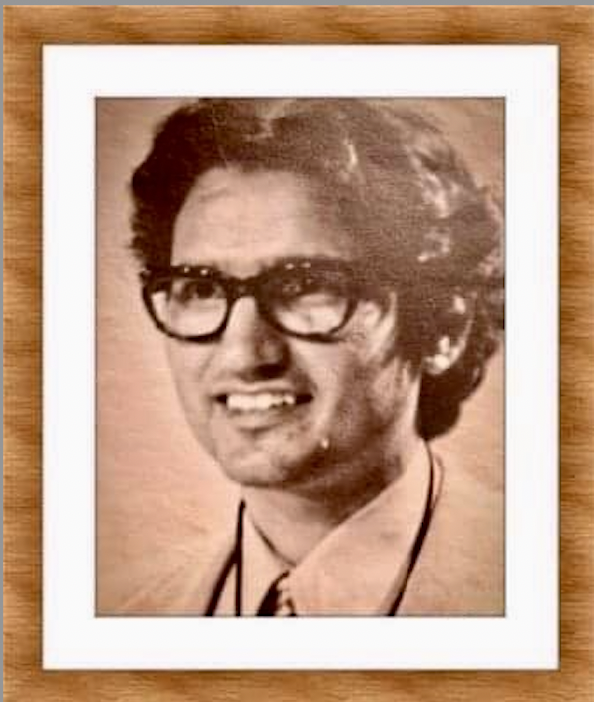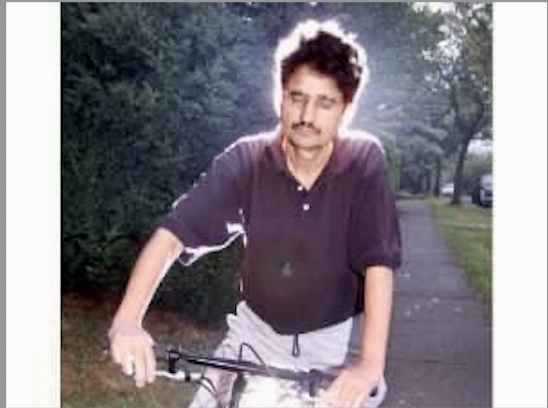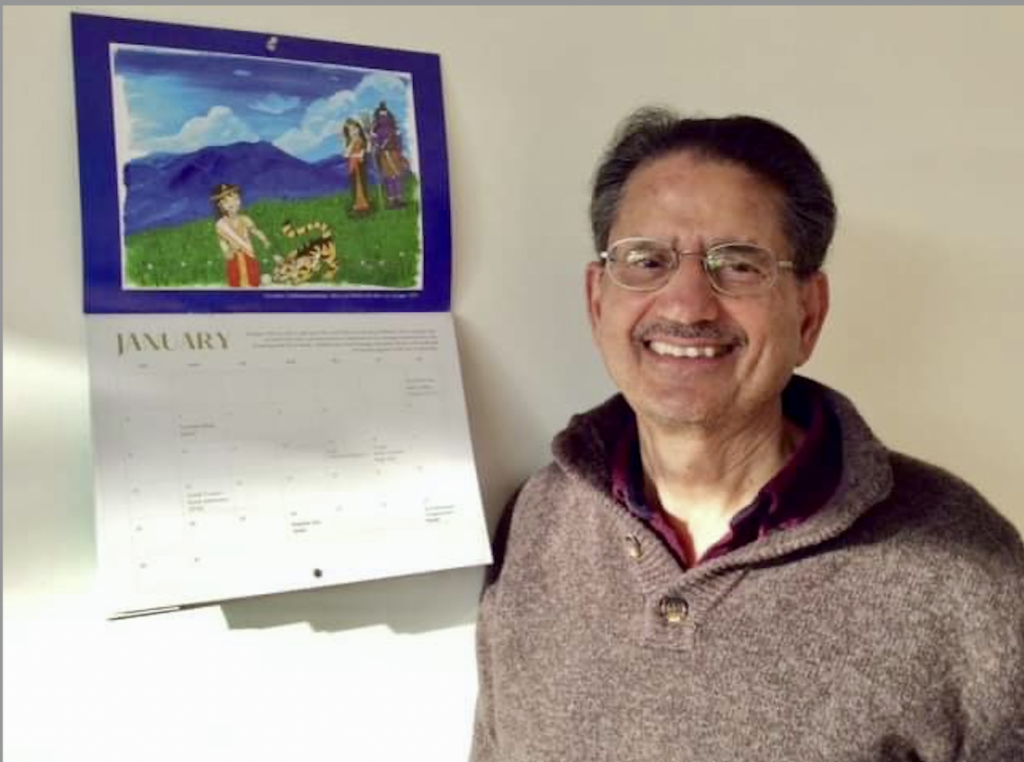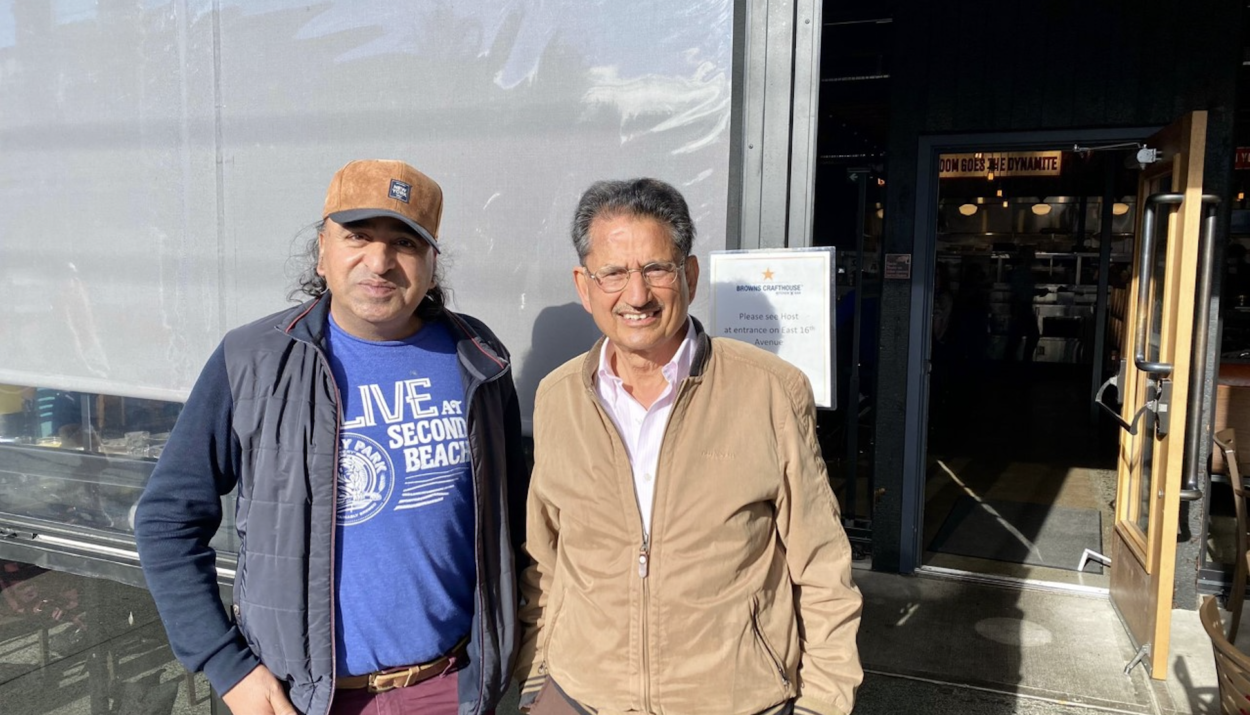By Promod Puri
Fifty years ago, after saying goodbye to India, I knocked on the door of Canada.
The point of entry was Winnipeg in October 1972.
My route to settle in Canada was through a visitor’s visa. On arrival at the airport, the excitement dimmed when my Indian passport was stamped for only two weeks visit, leaving the country and returning.
However, the next day I, along with my brother Ashok, who was already an immigrant, drove down to the local immigration office requesting an extension of my stay. “Okay, you get three months more on top of the two weeks, enjoy the Canadian X-mas and then leave.”

The considerate immigration officer gave me some respite and a repressed smile.
Fortunately, within that period, Prime Minister Pierre Trudeau, my most favourite contemporary Canadian leader whom I revered for his philosophical wisdom and fearless leadership, suddenly announced “Amnesty.”
I seldom heard this word before, but it was a proclamation under which all visitors, who had already arrived in Canada, could apply for immigration.
Among the first in the long but cheerful queue, I got my landed immigration papers. The door I knocked on opened wide to accept and root me in the pride of Canada.
In that pride lies its natural beauty, peace-loving and welcoming people respecting the diversity in its multicultural environment, and the friendly neighbourly border with the USA that I can hop on and hop off. It is also a country with multiple opportunities to dream of and pursue.
With that discreet recognition, I began my exhilarating life in Canada.
My working career in the land of opportunities began on several scaffoldings; running the till at 7-Eleven, as a waiter in restaurants, hosting a non-paying community TV program, starting a bimonthly newspaper, The Link, in 1973, and landing a job with $500 monthly pay as editor of The New Nation, a Native and Metis publication in Winnipeg.
As I entered my journalistic line of work, “Perks of the trade” started rolling in. That included free trips to tour the province of Manitoba and visit northern communities. At the annual Folklorama festival, I could jump the long lineups as a guest, sit on the front chairs and be served the ethnic foods from the participating ‘nations’ pavilions.
As things settled down, one day, I decided to take a break, go back to India, and get married.
The mission got accomplished traditionally. The family did the legwork, search, and research to find the “matching match.” In the small city of Jammu, where everybody knew everybody, “the word got circulated” that her father and brothers came to see me. Next, my eldest brother and I got invited to meet her and the family. “Yes,” from both sides. Within a few days, Rita became my life partner in a small non-fat wedding.
With some angelic faith in our fates, we set to start our lives together without ever knowing each other before. The blind move had its anxiety and hope. The feelings got a little unwrapped when at one of the after-marriage functions, Rita beautifully sang the following lyrics:
“Dekho Woh Chand Chupke Karta Hai Kya Ishare.
ulfat ka aaj hamne iqarar kar liya hai
lekin ye kaun jane kismat me kya likha hai
manjil ko chal pade hai taqdir ke sahare
ho gaye tumhare, dekho vo chand chupkese
karta hai kya ishare. “
dil mein siwaa tumhaare koyi nahin hamaare
ye apne dil se poochho kyaa dil mein hai tumhaare
denge meri gawaahi kudarat ke ye nazaare
ho gaye tumhaare,
dekho wo chaand chhupke kartaa hai kyaa ishaare
dekho.
The crux of the message in these sweet and expressive lines is that: “I have committed myself in love. But who knows what’s written down in my destiny; I started this journey of my destination holding on to my fate; it is wholly you who now resides in my heart; nature is my witness; look at the moon; what does its quite nodding mean.”
Concealing these sentiments within herself, Rita left India to join me within two months of our marriage.
A person of multiple talents with academic and vocal music degrees, compassionate, hospitable, intelligent and diligent, she dawned her life in Canada in the hot summer of the Prairies.
My “welcome to Canada” sweet treat to her was the refreshing “Banana Split,” the loaded but delicious Dairy Queen ice cream nestled between banana slices and a few other seasonal fruits with whipped topping. She liked it very much but failed the challenge to finish the DQ’s soft delight.

Rita rolled up her sleeves and began learning typing in a downtown business school, and soon her speed on the keys was like a galloping horse. She started typing news stories for The Link on an IBM typewriter ‘printer’ in ‘justified’ columns.
The Link was like a sidekick besides working for The New Nation. It kept me linked with India and the South Asian Canadian community. It was a business of no-loss-no-gain, but there was the journalistic instinct, some passion and thrill to see copies of The Link rolling out from the printing press in Portage la Prairie, an hour-long drive from Winnipeg.
In this pursuit, I remember pasting a headline in The Link that read like this: “Can Bear Now Available in India.” The foreman at the print shop was shocked to read the heading. His instant reaction was, “how is that possible!” I immediately realized the blunder and requested the foreman, “please remove ‘a’ and replace it with ‘e’ for the correct beer spelling.” Cheers, the correction got done, knowing that is the problem with the English language; it has words that sound similar but spell differently.
In Winnipeg, our social and professional life started brimming, but financially just okay, able to pay rent and other needs. Somehow, with very little savings, we bought a brand-new townhouse for $25,000 (yes, that was the Winnipeg market in the mid ’70s). We enjoyed the place because of its location in the city’s core area, where friends used to drop by very often; it was like a clubhouse.

Life was busy but pleasing in the capital city of “Friendly Manitoba,” offering warmth in the harsh chills of its extended winter months and the unsparing bites of the mosquitos in its summers.
That made us think of moving somewhere else in Canada. But where shall we go?
“Zindagi Ek Safar Hai Suhana,” meaning life is a beautiful journey; that one day, a call from one of The Link’s ardent subscribers in Vancouver made a meaningful proposal. He suggested moving and running the publication from Vancouver, with a much larger South Asian Canadian population than in Winnipeg.
No debate, no argument and no second thought that we decided to let us go to Vancouver and then make the final decision. Next, we boarded the westbound CN train.
With Paranthas and homemade spiced pork pickle in our carry-on bag, we enjoyed the incredible and scenic journey passing through the prairies, the Rockies, Jasper, and Banff, and reaching our destination after three days.
Another reader of The Link who became a friend on the phone, Mr. Ishwar Patel, welcomed us at the railway station. He put our luggage in his large wagon and drove to his place.
The love and the hospitality of Mr. Patel and his family, especially the two teenage kids, were the contributing factors, along with Vancouver’s fascinating urban landscape and the greenery all around, that we made up our minds to move from Winnipeg.
The year was 1978.
The Vancouver community warmly treated us on a welcome mat while we pitched up The Link post on Main and 6th Avenue. The building (recently demolished) was a historical landmark for the South Asian community. It was where the first community radio started, and later TV programming, along with several ‘apna’ businesses.
The first Vancouver edition of The Link, a weekly now, got off the press during Diwali festive season. With that began our vigorous and demanding life. It was an endeavour of the two of us.
That involved meeting the press deadline, driving to North Vancouver to get the paper printed, loading it in our used and occasionally stalled car, and then delivering it to Indo-Canadian shops, restaurants, Gurudwaras, temples, etc., for free pickup by readers. That routine happened weekly from Vancouver to Surrey, Burnaby, and New Westminster.
My multi-task job involved being a publisher, editor, writer, reporter, layout artist, advertising salesman, delivering invoices to the advertisers and the arduous task of ‘collection.’ Rita handled the office and typed the news stories on a complex printing machine involving various chemicals.
In the thick of all this, the joy of bundle was when blessed with a daughter in December 1979. Next, our son was born in November 1983. For the ceremonial celebration, the famous Indian sweet, “Moti-choor Laddos,” were ‘imported’ from Toronto, as these were unavailable in Vancouver in those days. Kids got kids, and now we revel in the company of grandchildren.
Our abrupt move from Winnipeg to Vancouver proved blissful.
Over the years, the publishing business grew so that The Link became the community’s leading voice through English media. It became known for its unbiased stories with credible journalism. Expansion happened as The Link added to its staff in both the editorial and sales departments. We subscribed to the Reuters and India Abroad News Service for our overseas news coverage.
However, besides successes, we also faced challenges.
One significant turbulence was during the height of the Khalistan movement in the ’80s. The subsequent developments of the attack on the Golden Temple by the Indian armed forces, the assassination of prime minister Indira Gandhi by her Sikh bodyguards, and the mayhem that followed in the frenzied killing of innocent Sikhs in Delhi and other parts of India.
In Vancouver, the community situation was sensitive and volatile, and tempers were high. The division started appearing in the otherwise hitherto united Indo-Canadian community.
As a newsman running “the voice of the community,” I, on purpose, recklessly walked among the confronting fronts. The Link judiciously stayed logical and non-aligned in its news and views.
The dynamo kept running vigorously and resolutely to do the job in those dire and sometimes threatening circumstances; at the same time, we moved on responsibly and professionally from the tense period of the ’80s to the ’90s and beyond.
But then came the point that it was time for me to retire after over 30 years in a stressed but exciting career in the news business. The Link got sold at the dawn of the new century.
But I did not put the cap on my pen. Instead, my writing course began in its earnest.
An already lined-up project was to work on my long-term dream of writing and publishing a book on Hinduism. Finally, Hinduism, Beyond Rituals, Customs, And Traditions was out in 2016.

Living in Vancouver for the past four decades, I firmly believe that the West Coast of Canada offers some mystical divinity in its serene air that helps develop an attitude of spirited humanism.
In this metaphysical paradigm, I launched two websites: promodpuri.com and progerssivehindudialogue.com, that keep me busy reading a lot, writing and sharing the knowledge, information and opinion inspired by what I read.
Rationalism, humanism, and compassion with liberal, secular, and progressive preferences are the basis of the readings covered by the websites.
As I complete my 50th year in Canada, looking back gives me a view of a cascade voyage in the spirit of “the true North strong and free.” With that quintessential feeling, I humbly and thankfully salute the Maple flag and the benevolent door that let me in.
Promod Puri is a Vancouver-based writer and author and founder of the oldest South Asian English language newspaper The Link.













